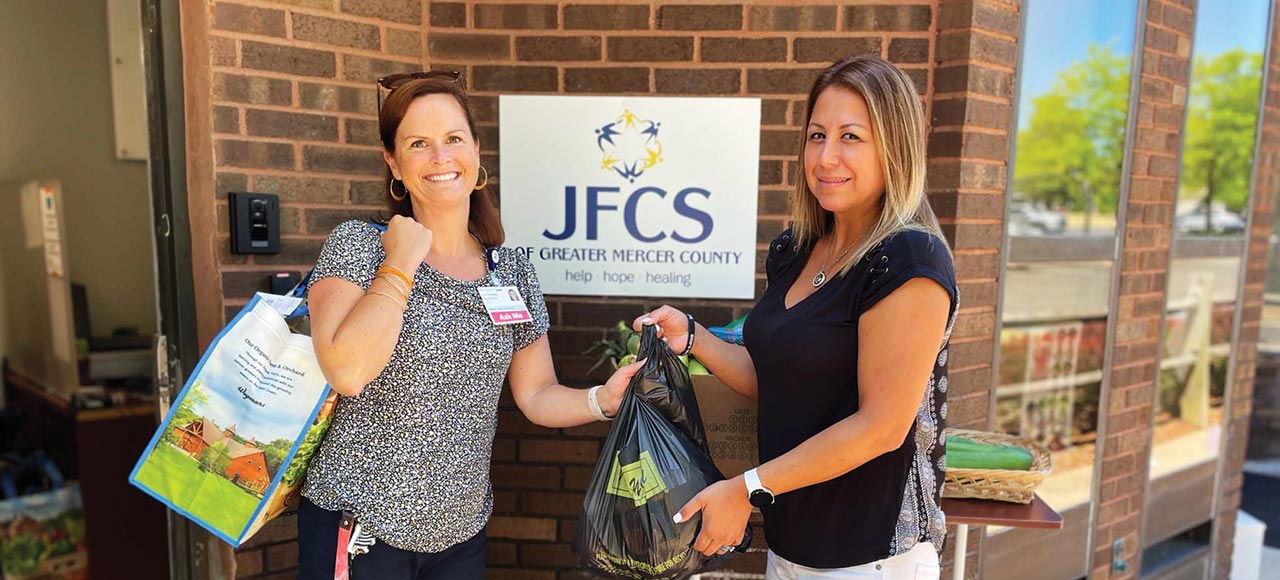Eldridge works with these patients to address obstacles to a successful recovery, which may include lack of transportation, addressing out-of-pocket medication expenses, lack of income due to inability to work, issues surrounding food insecurity and affordable housing, absence of social support, etc.
Princeton Health has prioritized developing strategic relationships with community partners to increase access and create solutions to reduce non-medical barriers to care. One example of collaboration is our relationship with Jewish Family Services of Greater Mercer County. This local social service organization donates fresh produce and other groceries, which we distribute to our patients.
During Eldridge’s first three months in her new position, she was able to offer outreach services to over 50 patients, and made 150 phone calls and more than 30 allied visits.
"The patients I have had the privilege to work with know firsthand that there are no quick fixes, especially when it comes to issues like housing. However, we are committed to making sure they are not alone as they navigate what can be a complicated road to assistance. Knowing they have support through the process can be as meaningful as the solution itself,” says Eldridge.
Pictured above, left to right: Catherine Eldridge, Princeton Health Community Health Navigator, accepts groceries from Lorena Morales, Jewish Family and Children Services of Mercer County’s Program Assistant for Counseling & Hunger Prevention.
Article as seen in Foundation News Fall 2022.


